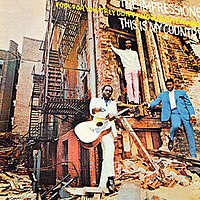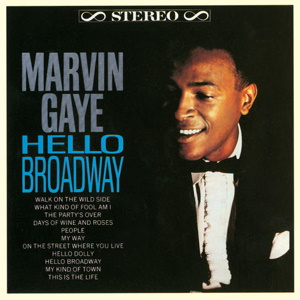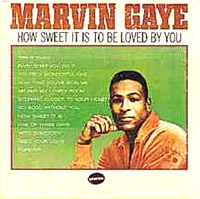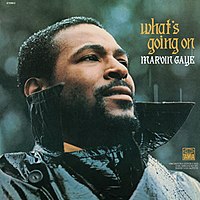1) Background
2) The band members
3) The studio
4) The songs
5) Track listing & lyrics
6) Links
Paul McCartney is not my favourite musician. I think he is a decent tune smith who has individually (both solo though mainly with the Beatles) written a handful of really great songs - I Saw Her Standing There, Drive My Car, Helter Skelter, and Maybe I'm Amazed (solo) being among those. Other songs for which he is generally acclaimed are Penny Lane, Let It Be, Eleanor Rigby, and Hey Jude - with his most acclaimed being Yesterday. He also wrote a series of blistering songs with John Lennon in the early days of the Beatles, such as I Wanna Hold Your Hand, and She Loves You - the last of which was Day Tripper, But while he could write a good rocker, and a delicate ballad, he was not one for writing edgy, envelope pushing songs, unless, such as with Helter Skelter, it was in response to criticism of his bland song-writing. He also had a tendency to pull the Beatles toward mediocrity and triviality with songs such as When I'm Eighty Four and Yellow Submarine. So his reputation is somewhat mixed, and his image tends to be somewhat negative.
When he left the Beatles the series of solo albums he released (there is no important difference to the albums released under his own name or the Wings name), while popular, are fairly widely acknowledged as poor stuff. Apart from Band On The Run. While some critics may like this album or that, putting forward their reasons for doing so, it is Band On The Run that is universally seen as his best work, and the one on which his entire solo career rests. It contains most of his best post-Beatles songs, and is a unified work with the sum being greater than the parts - generally the mark of a great album.
I have long liked Band On The Run. I liked it at the time of its release, and have continued to like it since. It has never diminished in appeal for me. Indeed, if anything the appeal has grown. While looking into McCartney's entire output for this blog post, my view that the album is his best has deepened. And while I respect the man's determination to carry on through harsh criticism (almost ridicule at times), and have been impressed by both his song-writing ability and his musicianship, I haven't really been knocked out by the majority of his output, nor been moved or awed by his instrument playing. The best instrument playing I feel he has done is the lead guitar work on Band On The Run - sharp, edgy, exciting, sort of vengeful. It's guitar playing that says - listen to this, take this, see what I can do. Stuff that in your face and eat it. And such an attitude is the result of the background to the recording of the album in which he was let down by both drummer and lead guitar player at the last moment. McCartney has himself said he went on to record the album while being somewhat angry at the situation, and with an "I'll show you" attitude.
1) Background
Blamed for breaking up the Beatles, seen as the lessor of the song-writing partnership of Lennon & McCartney, critically dismissed for his solo output since leaving the Beatles, McCartney was not in a good place in 1973. His solo albums and singles were all over the place, showing a lack of focus and direction. In 1972 he had tried to return to the freedom and excitement of the early days of the Beatles by packing his band Wings into a van and taking them on a secret tour of the UK, something he had wanted to do in the later days of the Beatles. This was followed by a European tour in a red London bus, and then a more conventional tour of the UK in the summer of 1973. The band, consisting of McCartney and his wife Linda, ex-Moody Blues member Denny Laine, Henry McCullough on lead guitar, and Denny Seiwell on drums, then started rehearsals for a new album. McCartney wanted to record somewhere different to the Abbey Road studios he had always used, and selected a studio in Lagos, Nigeria, from a list of EMI studios. Just before the band flew out to Africa, McCullough and Seiwell left the band, leaving McCartney no time to find replacements. He decided to continue with his plan of recording in Lagos, playing drums and lead guitar himself.
2) The band members
Because two members of the band quit before recording started, the band consisted of only three members:
 |
| McCartney playing drums in the studio at Lagos |
- Paul McCartney – vocals; acoustic, electric and bass guitars; piano and keyboards; drums and percussion
- Linda McCartney – keyboards and vocals
 |
| Laine and McCartney |
- Denny Laine – vocals; acoustic, electric and bass guitars; keyboards; percussion
Born in Birmingham as Brian Hines, Denny Laine had a grammar school education before becoming a part-time professional musician, working in a department store by day and playing at night. He changed his name to Johnny Dean and formed a band Johnny Dean and the Dominators, then changed his name to Denny Laine to form Denny Laine and the Diplomats. The Diplomats supported the Beatles in 1963, and twice went into the recording studio, though no singles were released. Denny left the band in 1964, Jim Onslow replacing him. It was this version of the band that appeared on ATV’s “For Teenagers Only” singing Put You Down. Denny joined Birmingham band The Krew Cats who changed their name to the M&B5 after the local Mitchells & Butlers Brewery, before taking the name Moody Blues. Denny wrote and sang on their first successful single, "Go Now" in 1964. By October 1966 the band had not repeated that success so Denny left, to be replaced by Justin Hayward and John Lodge who would lead the band into their most creative and successful phase. Denny formed the Electric String Band who recorded a few unsuccessful singles, such as Why Did You Come, before Denny went solo, releasing an unsuccessful version of his song, Say You Don't Mind, which later became a hit for Colin Blunstone. Laine joined with other Birmingham musicians in 1969 to form Balls, which released the one single, Fight For My Country in 1971. During this period he also played in Ginger Baker's Air Force, which released two albums, which included one Laine composition, You Wouldn't Believe It.He joined with McCartney in 1971 to tour and record under the name Wings. They recorded two albums together before making Band On The Run.
3) The studio
 |
| The Lagos mixing desk. Preserved at Grove Studios in England. |
5) Track listing and lyrics
"Band On The Run"
Never seeing no one nice again like you, Mama you, Mama you.
If I ever get out of here, thought of giving it all away to a registered charity.
All I need is a pint a day, if I ever get out of here, if we ever get out of here.
Well, the rain exploded with a mighty crash as we fell into the sun,
And the first one said to the second one there i hope you're having fun.
Band on the run, band on the run.
And the jailer man and sailor Sam were searching every one
For the band on the run, band on the run, band on the run, band on the run
Well, the undertaker drew a heavy sigh seeing no one else had come,
And a bell was ringing in the village square for the rabbits on the run.
Band on the run, band on the run.
And the jailer man and sailor Sam, were searching every one
For the band on the run, band on the run, there's a band on the run, band on the run
Well, the night was falling as the desert world began to settle down.
In the town they're searching for us every where, but we never will be found.
Band on the run, band on the run
And the county judge, who held a grudge, will search for evermore
For the band on the run, band on the run, band on the run, band on the run
"Jet"
That time you told me that you were going to be marrying soon.
And Jet, I thought the only lonely place was on the moon.
Jet! Jet!
Jet! was your father as bold as a sergeant major?
How come he told you that you were hardly old enough yet?
And Jet, I thought the major was a lady suffragette.
Jet! Jet!
Ah, mater, want jet to always love me?
Ah, mater, want jet to always love me?
Ah, mater, much later.
Jet! with the wind in your hair of a thousand laces.
Climb on the back and we'll go for a ride in the sky.
And Jet, I thought the major was a real lady suffragette.
Jet! Jet!
"Bluebird"
And you'll know what love is for.
I'm a bluebird, I'm a bluebird
I'm a bluebird, l'm a bluebird, yeah ,yeah ,yeah.
I'm a bluebird, I'm a bluebird, I'm a bluebird, yeah, yeah, yeah.
Touch your lips with a magic kiss and you'll be a bluebird too,
And you'll know what love can do.
I'm a bluebird, I'm a bluebird, I'm a bluebird, I'm a bluebird
Yeah, yeah, yeah.
I'm a bluebird, I'm a bluebird, I'm a bluebird, yeah, yeah, yeah.
Bluebird ah ha, bluebird ah ha, bluebird.
Fly away through the midnight air
As we head across the sea, and at last we will be free.
You're a bluebird, you're a bluebird, you're a bluebird, you're a bluebird
Yeah, yeah, yeah.
You're a bluebird, you're a bluebird, you're a bluebird
Yeah, yeah, yeah.
Bluebird ah ha, bluebird ah ha, bluebird.
All alone on a desert island we're living in the trees,
And we're flying in the breeze.
We're the bluebirds, we're the bluebirds, we're the bluebirds, we're the bluebirds
Yeah, yeah, yeah.
We're the bluebirds, we're the bluebirds, we're the bluebirds
Yeah, yeah, yeah.
Bluebird ah ha, bluebird ah ha, bluebird.
"Mrs. Vanderbilt"
You don't ever know the time but you don't mind
Ho hey ho, ho hey ho, ho hey ho
When your light is on the blink you never think of worrying
What's the use of worrying?
When your bus has left the stop you'd better drop your hurrying
What's the use of hurrying?
Leave me alone Mrs Vanderbilt I've got plenty of time of my own
What's the use of worrying? What's the use of hurrying?
What's the use of anything?
Ho hey ho, ho hey ho, ho hey ho
What's the use of worrying? What's the use of hurrying?
What's the use of anything?
Ho hey ho, ho hey ho, ho hey ho
When your pile is on the wane you don't complain of robbery
Run away don't bother me
What's the use of worrying? (no use!) What's the use of anything?
Leave me alone Mrs Washington, I've done plenty of time on my own
What's the use of worrying?
What's the use of hurrying? (no use!) What's the use of anything?
Ho hey ho...
"Let Me Roll It"
You gave me loving in the palm of my hand
I can't tell you how I feel, my heart is like a wheel
Let me roll it, let me roll it to you
Let me roll it, let me roll it to you
I want to tell you, and now's the time
I want to tell you that you're going to be mine
I can't tell you how I feel, my heart is like a wheel.
Let me roll it, let me roll it to you
Let me roll it, let me roll it to you
"Mamunia"
The rain comes falling from the sky to fill the stream that fills the sea
And that's where life began for you and me
So next time you see rain it ain't bad,
Don't complain it rains for you,
The next time you see LA. rainclouds,
Don't complain it rains for you and me
Mamunia mamunia mamunia, oh oh oh....
It might have been a bright blue day but rain clouds had to come this way
They're watering everything that they can see.
A seed is waiting in the earth for rain to come and give him free,
So the next time you see LA. rainclouds
Don't complain, it rains for you.
So lay down your umbrellas
Strip off your plastic macs.
You've never felt the rain my friend, till you've felt it running down your back
So the next time you see rain, it ain't bad
Don't complain, it rains for you.
The next time you see LA rainclouds
Don't complain it rains for you and me.
Mamunia mamunia mamunia, oh oh oh....
"No Words"
I'm not surprised, that your black eyes are gazing.
You say that love is everything
And what we need the most of
I wish you knew, that's just how true my love was.
No words for my love
You're burning love, sweet burning love
It's deep inside, you mustn't hide, your burning love
Sweet burning love, your burning love.
You want to turn your head away, and someone's thinking of you
I wish you'd see, it's only me, I love you.
No words for my love
"Helen Wheels" (included on USA releases)
Glasgow town never brought me down when I was heading out on the road
Carlisle city never looked so pretty, and the Kendal freeway is fast
Slow down driver, wanna stay alive, I wanna make this journey last
Helen (Helen) hell on wheels
Ain't nobody else gonna know the way she feels
Helen (Helen) hell on wheels
And they never gonna take her away
M6 south down Liverpool, where they play the West Coast sound
Sailor Sam, he came from Birmingham, but he never will be found
Doin' fine when a London sign, greets me like a long lost friend
Mister motor won't you check her out, she's gotta take me back again
Helen (Helen) hell on wheels
Ain't nobody else gonna know the way she feels
Helen (Helen) hell on wheels
And they never gonna take her away
Got no time for a rum and lime, I wanna get my right foot down;
Shake some dust off of this old bus, i gotta get her out of town
Spend the day upon the motorway, where the carburettors blast;
Slow down driver, wanna stay alive, I wanna make this journey last
Helen (Helen) hell on wheels
Ain't nobody else gonna know the way she feels
Helen (Helen) hell on wheels
And they never gonna take her away
Say bye-bye.....
"Picasso's Last Words (Drink To Me)"
His paintings on the wall
Before he went he bade us well
And said goodnight to us all.
Drink to me, drink to my health
You know I can't drink any more
Drink to me, drink to my health
You know I can't drink any more
3 o'clock in the morning
I'm getting ready for bed
It came without a warning
But I'll be waiting for you baby
I'll be waiting for you there
So drink to me drink to my health
You know I can't drink any more
Drink to me drink to my health
You know I can't drink any more
"Nineteen Hundred And Eighty Five"
She may be right she may be fine
She may get love but she won't get mine
'Cos I got you, oh I oh I
Well I just can't enough of that sweet stuff
My little lady gets behind
Shake it - shake it don't break it
Oh my mama said the time would come
When I would find myself in love with you
I didn't think I never dreamed
That I would be around to see it all come true
Woh I oh I
Well I just can't get enough of that sweet stuff
My little lady gets behind
"Country Dreamer" (Bonus track)
take my hat and my boots off too.
I'd like to lie in a field with you.
Would you like to do it too, may?
Would you like to do it too?
I'd like to stand in a stream with you,
roll my trousers up and not feel blue.
I'd like to wash in a stream with you.
Would you like to do it too?
You and I, country dreamer,
when there's nothing else to do;
Me oh my, country dreamer,
make a country dream come true.
I'd like to climb up a hill with you,
stand on top and admire the view.
I'd like to roll down a hill with you.
Would you like to do it too, may?
Would you like to do it too?
I'd like to climb up a hill with you,
take my hat and my boots off too.
I'd like to lie in a field with you.
Would you like to do it too, may?
Would you like to do it too?
6) Links
Rolling Stone
Acclaimed Music
Dermot O'Leary documentary
Wikipedia
Graham Calkin's Beatles Pages
Ottawa Beatles Site
Beatles Bible
Gibson
6) Discography
Kitchen Table Music Blog














































